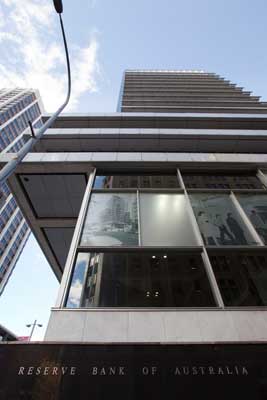Payments System Board Update: August 2023 Meeting

At its meeting today, the Payments System Board discussed a number of issues, including:
- The annual Assessment of the ASX clearing and settlement facilities against the Financial Stability Standards. The Board endorsed the Banks Assessment, which will be published after it has been provided to the Treasurer and the Australian Securities and Investments Commission. The Board also discussed and welcomed ASICs initiative for ASX to establish an industry Advisory Group for strategic clearing and settlement issues related to cash equities.
- The oversight of international financial market infrastructures including LCH SwapClear, CME, Clearstream Banking, Euroclear Bank, CLS and SWIFT. The Board noted that LCH SwapClear is in the final stages of implementing an extension of its operating hours to cover the Australian business day.
- Prominent payment systems. The Bank has been consulting with industry on the development and implementation of a framework for the oversight of prominent payment systems where an operational complication could cause significant economic disruption and damage confidence in the financial system. The Board also considered the effectiveness of the risk management framework and operational risk management of the New Payments Platform (NPP), operated by AP+ and discussed the importance of continued investment to deliver a safe and resilient NPP.
- Competition in the debit card market. Based on industry feedback gathered during a recent public consultation, the Board decided that it would not further explore prohibiting card schemes and issuers from setting a default routing network on dual-network debit cards. Feedback indicated that such a prohibition could result in failed transactions and require a costly reissuance of all debit cards. The Board, however, remains strongly supportive of merchants having the ability to choose their preferred debit card network through least-cost routing (LCR). While LCR is now widely available to merchants for in-store transactions from a technical perspective, the functionality has not been enabled for many merchants. The Bank has published LCR reporting from large providers, which indicates that 54 per cent of their merchant customers had LCR enabled for in-store transactions at the end of June, with this share only increasing marginally over the year. Further, the industry has not made sufficient progress in enabling LCR for online transactions, with only a few providers making LCR widely available to their merchants for online transactions. The Board expects providers to make faster progress on enabling LCR for merchants that could benefit from it. If substantial progress is not made by June 2024, the Bank will explore a formal regulatory requirement to enable LCR.
- Improving the security of debit card transactions in the online environment. A recent public consultation indicated there was broad support among stakeholders for the industry to explore introducing more standardisation for payment card tokenisation to promote security, efficiency and competition in the payments system. Following further consultation with industry, the Bank will publish high-level expectations for the industry by the end of 2023. These expectations will outline the steps that the industry needs to take, and the deadlines for their completion, to help ensure that the security benefits of tokenisation are realised.
- International and domestic work on central bank digital currency (CBDC). Members discussed the ongoing research on CBDC, including the Banks CBDC pilot project with the Digital Finance Cooperative Research Centre (DFCRC), which concluded in late July. The project explored use cases that could be supported by the issuance of a CBDC in Australia. The Bank and the DFCRC will publish a report on the project in late August. The Board also met with firms in the digital asset industry to discuss issues relating to the future of money in Australia, including the opportunities arising from asset tokenisation and the potential role of CBDC in the digital economy.

